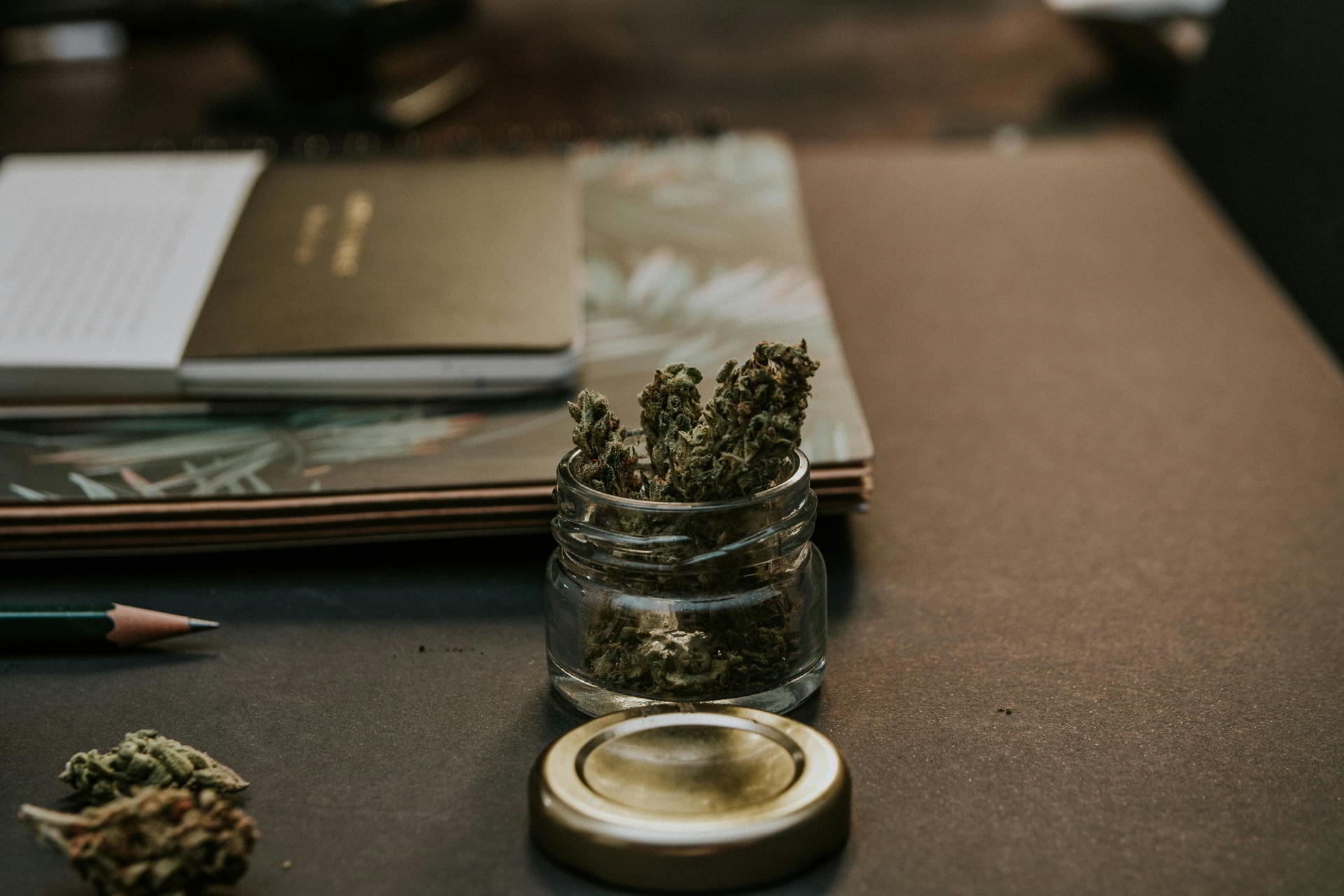
Cannabis Legalisierung Europa 2025 – Länder im Überblick
Deutschland 2025: Cannabisgesetz & Eigenanbau
Die Cannabislandschaft in Europa verändert sich rasant. Immer mehr Länder überdenken ihre Haltung zur Pflanze – mit Fortschritten bei Legalisierung, medizinischer Nutzung und dem Eigenanbau. Im Jahr 2025 steht Europa an einem Wendepunkt.
Deutschland hat im April 2024 einen bedeutenden Schritt gemacht: Der Besitz und der Eigenanbau von Cannabis für den persönlichen Gebrauch ist legal. Erwachsene dürfen:
A New Era of Legalization: Malta, Luxembourg & Germany
Niederlande: Vom Toleranzmodell zur legalen Abgabe
Zusätzlich sind Cannabis Social Clubs erlaubt, in denen Mitglieder gemeinsam Cannabis kultivieren und unter Auflagen beziehen dürfen. Der Verkauf bleibt jedoch weiterhin stark reguliert und ist nur über bestimmte Kanäle erlaubt. Der medizinische Markt bleibt unabhängig davon bestehen.
Trotz des bekannten „Toleranzmodells“ war der Cannabisanbau in den Niederlanden lange in einer rechtlichen Grauzone. Seit 2023 läuft ein Pilotprojekt, in dem Cannabis kontrolliert angebaut und an Coffeeshops geliefert wird. 2025 könnte dieses Modell auf das ganze Land ausgeweitet werden – mit dem Ziel, Qualität und Sicherheit zu gewährleisten.
Tschechien: Legalisierung mit Regulierung geplant
Tschechien plant 2025 eine kontrollierte Legalisierung von Cannabis. Geplant sind:
Die tschechische Regierung sieht wirtschaftliche Chancen und möchte den Schwarzmarkt eindämmen.
Schweiz: Pilotprojekte für Cannabisverkauf in Apotheken
In der Schweiz werden derzeit mehrere Pilotprojekte zur Cannabisabgabe in Apotheken und Fachgeschäften durchgeführt. Ziel ist es, fundierte Daten zur Wirkung und gesellschaftlichen Akzeptanz zu sammeln. Die Erkenntnisse sollen in die Gestaltung einer zukünftigen Legalisierung einfließen.
- bis zu 25 g Cannabis mit sich führen
- bis zu 3 Pflanzen zu Hause anbauen
- Non-profit Cannabis Social Clubs may grow and distribute cannabis to members
Frankreich bleibt in Sachen Freizeitgebrauch zurückhaltend. Der Fokus liegt derzeit klar auf medizinischem Cannabis, das seit 2022 in einer breiten Testphase an Patientinnen und Patienten verfügbar ist. Ob Frankreich sich in Richtung Legalisierung bewegt, bleibt offen – gesellschaftlich ist das Thema noch stark umstritten.
Frankreich: Fokus auf medizinisches Cannabis
Spanien erlaubt den Eigenanbau und Konsum im privaten Raum, jedoch ist der Handel weiterhin illegal. Cannabis Social Clubs sind weit verbreitet, bewegen sich aber in einer rechtlichen Grauzone. Die politische Diskussion bleibt lebhaft – eine einheitliche Regelung ist 2025 noch nicht in Sicht.
Spanien: Social Clubs und rechtliche Grauzonen
Trotz wachsender Legalisierung gilt: Cannabis darf nicht über Ländergrenzen hinweg transportiert werden – auch nicht zwischen legalen Staaten. Der Besitz im Ausland kann je nach Gesetzeslage strafbar sein. Wer auf Nummer sicher gehen will, lässt Cannabis zu Hause.
Cannabis auf Reisen in Europa: Was ist erlaubt?
2025 ist ein Schlüsseljahr für die Cannabispolitik in Europa. Immer mehr Länder bewegen sich in Richtung kontrollierter Legalisierung und Entkriminalisierung – jedoch mit sehr unterschiedlichen Modellen.
Czech Republic
Deutschland und Tschechien gehören zu den Vorreitern, während andere Staaten wie Frankreich und Spanien zurückhaltender bleiben. Die Entwicklungen zeigen: Der Dialog ist eröffnet – und Europa bewegt sich Stück für Stück auf ein neues Verständnis von Cannabis zu.
Fazit: Europa in Bewegung
Across Europe, medical cannabis has become increasingly accepted. Countries like France, Italy, Poland, Denmark, Germany, and the UK now permit its use for specific health conditions.
Germany leads the way here too, with a well-established medical cannabis market supported by both domestic and imported products. Denmark and Poland also run structured medical programs, while Greece and North Macedonia have focused on cultivation for export.
Access, however, remains uneven. In France and the UK, prescriptions are rare and often only available through private clinics. In some places, reforms exist on paper but remain inaccessible to the average patient. Recreational use, meanwhile, is still prohibited in most of these countries. But the growth of medical programs has helped shift public opinion and build the logistical foundations for broader reform in the future.
Prohibitionist Holdouts: Still Saying No
While many countries are moving toward reform, a few still hold the line with strict prohibition.
- Lizenzen für Anbau und Vertrieb
- eine nationale Cannabisagentur
- Beschränkungen ähnlich wie in Deutschland
In these countries, even small-scale cannabis use can result in legal trouble, and political momentum for change is limited. Still, rising support for reform in neighboring countries may eventually push these holdouts to rethink their approach.
Germany: One Year On
Germany’s legalization model emphasizes structure and control. Social clubs (“cannabis social clubs deutschland”) must follow strict regulations: up to 500 members, no advertising, and caps on monthly distribution (50 grams per person).
Home growing (“eigenanbau cannabis erlaubt”) has also become a popular option, with clear legal guidelines around plant limits, storage, and seed sourcing. Importantly, this brings long-time hobby growers into the light, finally offering legal recognition to a previously underground community.
Public support is strong. A 2024 survey found that 59% of Germans support regulated retail sales, and many believe the current law is just a starting point. Phase 2 of the Cannabis Act, which would introduce commercial pilot projects in select regions, is already in planning.
What It Means for You: Possession, Home Grow & Travel
Legal Home Growing
As of 2025, home cultivation (“cannabis anbau legal europa”) is legal in Germany, Malta, and Luxembourg. Czechia may join soon. Limits vary, but the general trend is toward allowing adults to grow cannabis for personal use in private settings.
Possession Laws
Many countries now decriminalize possession of small amounts, meaning you may face a fine, but not a criminal record, for carrying cannabis. That said, limits and enforcement vary, so it’s still important to check local laws.
Public Use
Even in legal countries, public consumption is typically restricted. Most models focus on private use, either at home or in designated club spaces.
Cross-Border Travel
One important note: cannabis is illegal to transport across borders, even between countries where it’s legal. For example, carrying cannabis from Germany to Luxembourg — two legalization- friendly countries — could still get you into serious trouble. Always consume locally and leave it behind before you travel.
How Europe Compares Globally
Europe’s model is distinct. Unlike Canada or many U.S. states, most European countries have avoided retail cannabis markets. Instead, they’ve leaned into non-commercial frameworks: personal grow limits, cannabis clubs, and state-supervised access. This puts Europe closer to countries like Uruguay, where cannabis is legal but tightly controlled, with membership systems and government oversight instead of free-market sales.
Why the caution? Partly due to EU legal constraints, and partly a reflection of Europe’s public health-first mindset. Policymakers want to avoid the excesses of over-commercialization seen elsewhere, and focus instead on responsible use. Still, pilot programs in Germany and Switzerland could shift the landscape, showing how regulated retail might function within a European framework.
The Road Ahead: What’s Next for Cannabis in Europe?
Several major developments are worth watching in the year ahead (“cannabis legalisierung länder europa”):
- Germany’s Phase 2 will test commercial cannabis sales in select cities.
- Czech Republic is debating a legalization bill that could introduce home grow and cannabis clubs.
- Switzerland is running pilot projects with regulated sales through pharmacies and clubs.
- France, Italy, and the UK face growing public pressure, though political progress remains slow.
- The EU may eventually need to address its outdated drug laws to accommodate member- state reforms.
In short, the momentum is building. Reform may be uneven, but the trajectory is clear.
Final Thoughts
Cannabis reform in Europe (“cannabis reform europa”) is happening right now. Countries are experimenting with different models, learning from one another, and shifting the conversation from punishment to regulation. If you’re a grower, consumer, or just cannabis-curious, there’s never been a more exciting time to pay attention. Legalization isn’t a one-size-fits-all story in Europe, but it is becoming a shared one.
Deutschland 2025: Cannabisgesetz & Eigenanbau
Die Cannabislandschaft in Europa verändert sich rasant. Immer mehr Länder überdenken ihre Haltung zur Pflanze – mit Fortschritten bei Legalisierung, medizinischer Nutzung und dem Eigenanbau. Im Jahr 2025 steht Europa an einem Wendepunkt.
Deutschland hat im April 2024 einen bedeutenden Schritt gemacht: Der Besitz und der Eigenanbau von Cannabis für den persönlichen Gebrauch ist legal. Erwachsene dürfen:
A New Era of Legalization: Malta, Luxembourg & Germany
Niederlande: Vom Toleranzmodell zur legalen Abgabe
Zusätzlich sind Cannabis Social Clubs erlaubt, in denen Mitglieder gemeinsam Cannabis kultivieren und unter Auflagen beziehen dürfen. Der Verkauf bleibt jedoch weiterhin stark reguliert und ist nur über bestimmte Kanäle erlaubt. Der medizinische Markt bleibt unabhängig davon bestehen.
Trotz des bekannten „Toleranzmodells“ war der Cannabisanbau in den Niederlanden lange in einer rechtlichen Grauzone. Seit 2023 läuft ein Pilotprojekt, in dem Cannabis kontrolliert angebaut und an Coffeeshops geliefert wird. 2025 könnte dieses Modell auf das ganze Land ausgeweitet werden – mit dem Ziel, Qualität und Sicherheit zu gewährleisten.
Tschechien: Legalisierung mit Regulierung geplant
Tschechien plant 2025 eine kontrollierte Legalisierung von Cannabis. Geplant sind:
Die tschechische Regierung sieht wirtschaftliche Chancen und möchte den Schwarzmarkt eindämmen.
Schweiz: Pilotprojekte für Cannabisverkauf in Apotheken
In der Schweiz werden derzeit mehrere Pilotprojekte zur Cannabisabgabe in Apotheken und Fachgeschäften durchgeführt. Ziel ist es, fundierte Daten zur Wirkung und gesellschaftlichen Akzeptanz zu sammeln. Die Erkenntnisse sollen in die Gestaltung einer zukünftigen Legalisierung einfließen.
- bis zu 25 g Cannabis mit sich führen
- bis zu 3 Pflanzen zu Hause anbauen
- Non-profit Cannabis Social Clubs may grow and distribute cannabis to members
Frankreich bleibt in Sachen Freizeitgebrauch zurückhaltend. Der Fokus liegt derzeit klar auf medizinischem Cannabis, das seit 2022 in einer breiten Testphase an Patientinnen und Patienten verfügbar ist. Ob Frankreich sich in Richtung Legalisierung bewegt, bleibt offen – gesellschaftlich ist das Thema noch stark umstritten.
Frankreich: Fokus auf medizinisches Cannabis
Spanien erlaubt den Eigenanbau und Konsum im privaten Raum, jedoch ist der Handel weiterhin illegal. Cannabis Social Clubs sind weit verbreitet, bewegen sich aber in einer rechtlichen Grauzone. Die politische Diskussion bleibt lebhaft – eine einheitliche Regelung ist 2025 noch nicht in Sicht.
Spanien: Social Clubs und rechtliche Grauzonen
Trotz wachsender Legalisierung gilt: Cannabis darf nicht über Ländergrenzen hinweg transportiert werden – auch nicht zwischen legalen Staaten. Der Besitz im Ausland kann je nach Gesetzeslage strafbar sein. Wer auf Nummer sicher gehen will, lässt Cannabis zu Hause.
Cannabis auf Reisen in Europa: Was ist erlaubt?
2025 ist ein Schlüsseljahr für die Cannabispolitik in Europa. Immer mehr Länder bewegen sich in Richtung kontrollierter Legalisierung und Entkriminalisierung – jedoch mit sehr unterschiedlichen Modellen.
Czech Republic
Deutschland und Tschechien gehören zu den Vorreitern, während andere Staaten wie Frankreich und Spanien zurückhaltender bleiben. Die Entwicklungen zeigen: Der Dialog ist eröffnet – und Europa bewegt sich Stück für Stück auf ein neues Verständnis von Cannabis zu.
Fazit: Europa in Bewegung
Across Europe, medical cannabis has become increasingly accepted. Countries like France, Italy, Poland, Denmark, Germany, and the UK now permit its use for specific health conditions.
Germany leads the way here too, with a well-established medical cannabis market supported by both domestic and imported products. Denmark and Poland also run structured medical programs, while Greece and North Macedonia have focused on cultivation for export.
Access, however, remains uneven. In France and the UK, prescriptions are rare and often only available through private clinics. In some places, reforms exist on paper but remain inaccessible to the average patient. Recreational use, meanwhile, is still prohibited in most of these countries. But the growth of medical programs has helped shift public opinion and build the logistical foundations for broader reform in the future.
Prohibitionist Holdouts: Still Saying No
While many countries are moving toward reform, a few still hold the line with strict prohibition.
- Lizenzen für Anbau und Vertrieb
- eine nationale Cannabisagentur
- Beschränkungen ähnlich wie in Deutschland
In these countries, even small-scale cannabis use can result in legal trouble, and political momentum for change is limited. Still, rising support for reform in neighboring countries may eventually push these holdouts to rethink their approach.
Germany: One Year On
Germany’s legalization model emphasizes structure and control. Social clubs (“cannabis social clubs deutschland”) must follow strict regulations: up to 500 members, no advertising, and caps on monthly distribution (50 grams per person).
Home growing (“eigenanbau cannabis erlaubt”) has also become a popular option, with clear legal guidelines around plant limits, storage, and seed sourcing. Importantly, this brings long-time hobby growers into the light, finally offering legal recognition to a previously underground community.
Public support is strong. A 2024 survey found that 59% of Germans support regulated retail sales, and many believe the current law is just a starting point. Phase 2 of the Cannabis Act, which would introduce commercial pilot projects in select regions, is already in planning.
What It Means for You: Possession, Home Grow & Travel
Legal Home Growing
As of 2025, home cultivation (“cannabis anbau legal europa”) is legal in Germany, Malta, and Luxembourg. Czechia may join soon. Limits vary, but the general trend is toward allowing adults to grow cannabis for personal use in private settings.
Possession Laws
Many countries now decriminalize possession of small amounts, meaning you may face a fine, but not a criminal record, for carrying cannabis. That said, limits and enforcement vary, so it’s still important to check local laws.
Public Use
Even in legal countries, public consumption is typically restricted. Most models focus on private use, either at home or in designated club spaces.
Cross-Border Travel
One important note: cannabis is illegal to transport across borders, even between countries where it’s legal. For example, carrying cannabis from Germany to Luxembourg — two legalization- friendly countries — could still get you into serious trouble. Always consume locally and leave it behind before you travel.
How Europe Compares Globally
Europe’s model is distinct. Unlike Canada or many U.S. states, most European countries have avoided retail cannabis markets. Instead, they’ve leaned into non-commercial frameworks: personal grow limits, cannabis clubs, and state-supervised access. This puts Europe closer to countries like Uruguay, where cannabis is legal but tightly controlled, with membership systems and government oversight instead of free-market sales.
Why the caution? Partly due to EU legal constraints, and partly a reflection of Europe’s public health-first mindset. Policymakers want to avoid the excesses of over-commercialization seen elsewhere, and focus instead on responsible use. Still, pilot programs in Germany and Switzerland could shift the landscape, showing how regulated retail might function within a European framework.
The Road Ahead: What’s Next for Cannabis in Europe?
Several major developments are worth watching in the year ahead (“cannabis legalisierung länder europa”):
- Germany’s Phase 2 will test commercial cannabis sales in select cities.
- Czech Republic is debating a legalization bill that could introduce home grow and cannabis clubs.
- Switzerland is running pilot projects with regulated sales through pharmacies and clubs.
- France, Italy, and the UK face growing public pressure, though political progress remains slow.
- The EU may eventually need to address its outdated drug laws to accommodate member- state reforms.
In short, the momentum is building. Reform may be uneven, but the trajectory is clear.
Final Thoughts
Cannabis reform in Europe (“cannabis reform europa”) is happening right now. Countries are experimenting with different models, learning from one another, and shifting the conversation from punishment to regulation. If you’re a grower, consumer, or just cannabis-curious, there’s never been a more exciting time to pay attention. Legalization isn’t a one-size-fits-all story in Europe, but it is becoming a shared one.



